NOVOGRAD VOLYNSK
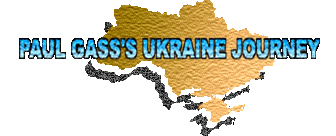
|
NOVOGRAD VOLYNSK |
 |
After two nights in Kiev, Vitaly drove us to Novograd Volynsk. Our photographer
and his son accompanied us in a separate car. The drive itself was an
experience. Ukraine lacks the interstate highway system that we take for granted
In America. The main roads that connect major cities would be considered side
roads in the United States. On our drive we shared the road with an assortment
of old, dilapidated vehicles, a few newer ones, horse-drawn wagons, bicyclists,
and people on horseback.
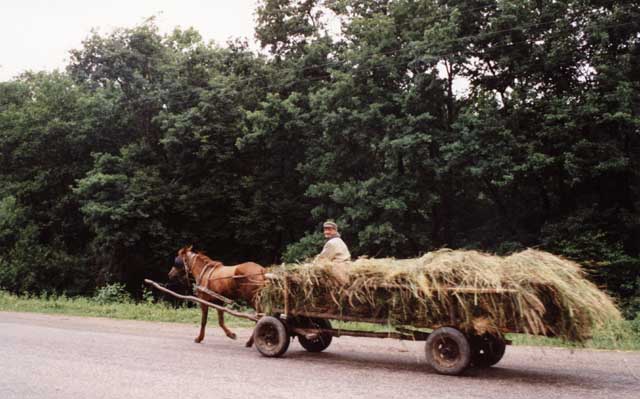
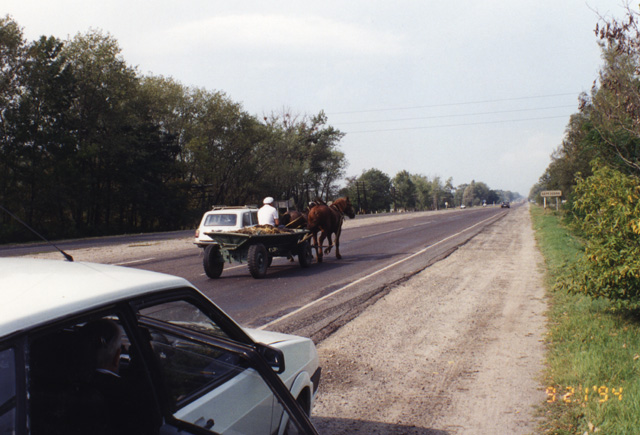
Cars and horse-drawn wagons sharing the road are a typical sight in rural
Ukraine.
Photo
credit (top left): Miriam Weiner of Routes to Roots
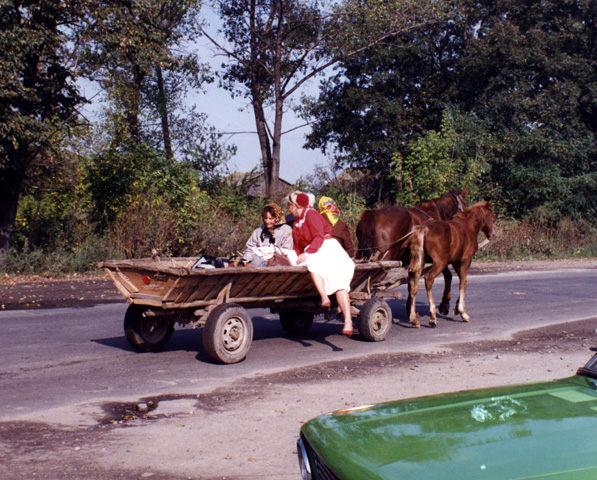
Because of its close proximity to the Polish border, Novograd
Volynsk is a military town with a large garrison. Prior to the Holocaust, 50 to
60 percent of the population was Jewish. Now only 5 percent is Jewish—800 people
have acknowledged their Jewishness. Perhaps two to three times this number are
Jewish but they are afraid to declare it. Most of the Jews in Novograd Volynsk
came from other regions of the former Soviet Union, and are not descendents of
the pre-Holocaust Jewish population.
In Novograd Volynsk we stayed at what was billed as a “four-star
hotel.” It contained the best accommodation and restaurant in the region. Miriam
Weiner had warned us ahead of time to bring our own pillowcases, towels, soap,
and toilet paper. We were glad that we had heeded her warning.
Our accommodations on the fourth floor were called the “Presidential Suite”,
which consisted of two rooms and a bathroom with ancient plumbing.
Unfortunately, the water pressure in the town was so low that water reached us
as a trickle. This was good enough for a slow sponge bath but insufficient for a
shower.
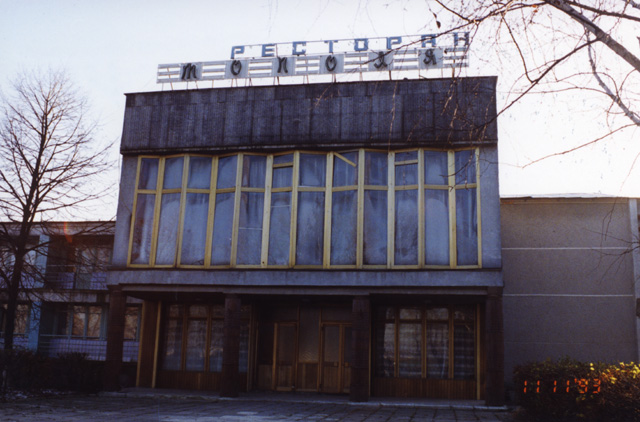 |
|
Best hotel and restaurant in Novograd Volynsk
|
One of the bedrooms contained two single beds, which were old
and uncomfortable. The other room had a futon that didn’t unfold completely. Not
unexpectedly, the rooms lacked TV and radio, but they did have roaches. The
hotel’s restaurant served a limited selection of food, most which was fat laden
and almost inedible to the American palate.
Vitaly and Miriam had prearranged meetings with the town officials for us
wherever we went and we were treated like visiting dignitaries. We always
brought gifts such as pens, rulers, staplers, and scotch tape, and in turn the
officials gave us souvenirs, such as postcards of the town (not easy to find
because they aren’t available for purchase), booklets containing town histories,
town maps with Jewish sites marked, even a vase.
In 1974, Baruch had published a paperback book, The Personal Nixon: Staying
on the Summit, which contained Nixon’s final extensive interview as
president. A photo of Baruch interviewing President Richard M. Nixon in
the Oval Office emblazoned the front cover. During our travels Baruch carried
around a supply of these books. When we encountered someone who had been
especially cordial to us or could smooth the way, Baruch would autograph a copy
of the book and give it to the person. Nixon had been very popular in Russia, so
the books were a big hit.
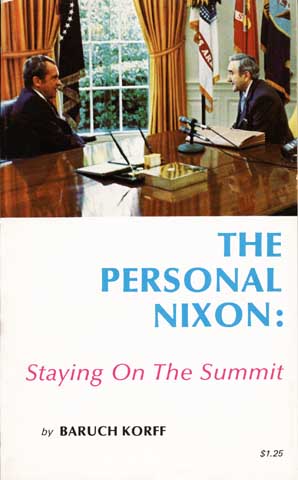 |
|
Baruch’s book |
In Novograd Volynsk the mayor, Vladimir Ivanovich Zagrevy, showed up the first day to greet us but that was the extent of our interaction with him. The assistant mayor, Leonty Nikolayevich, was assigned to us to be certain that we were 100 percent satisfied with our treatment.
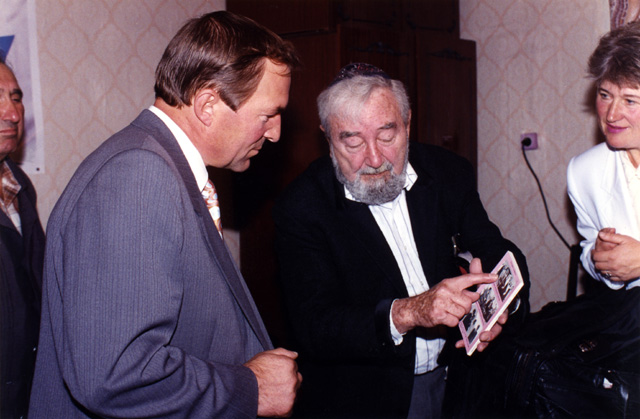 |
| Baruch showing a book to the mayor of Novograd Volynsk, Vladimir Ivanovich Zagrevy. The middle-aged woman looking on is in charge of providing human services to the elderly Jews in the community. |
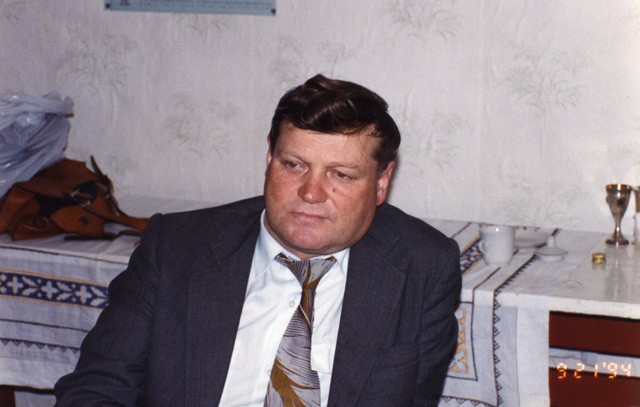 |
|
Leonty Nikolayevich, the assistant mayor of Novograd Volynsk, was extremely friendly and helpful throughout our stay. |